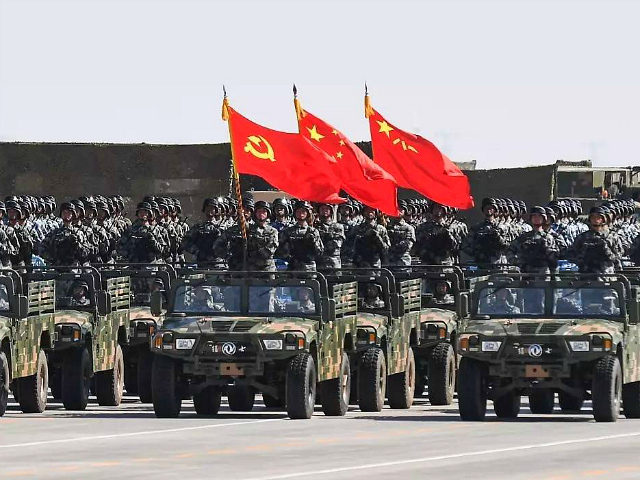Communist China is seeking to expand its military and political influence across Latin America, warns the Center for a Secure Free Society (SFS) think-tank in a new report, echoing the U.S. armed forces.
Titled, “The Dragon and the Condor: Beyond China’s Economic Influence in the Americas,” the new report issued this month, notes:
As a country grows economically, it is likely to increasingly project its power through military and political means as well, and that is certainly true of a country now acknowledged as the second largest global economy. It is also clear that China’s strategic objectives and interests are well beyond the economic realm, and that they raise considerable national security concerns for the U.S. as well as for other nations in the hemisphere.
…
State-controlled and PLA [People’s Liberation Army]-associated companies make it extremely difficult to differentiate China’s economic activity with its political-military activities.
Explicitly, the think tank assessment acknowledges that there has been a “steady increase in Chinese intelligence activities in Latin America,” noting that the countries in the region cannot combat Beijing’s capabilities.
SFS notes that Beijing’s intelligence activities in the Americas likely seek to “collect information on U.S. military technology and doctrine; conduct cyberwarfare; and carryout corporate espionage,” later adding:
China’s presence in Latin America will continue to grow not only in the economic sphere, but also in political, security, and cultural aspects. China’s intelligence operations in Latin America will be carried out gradually and in stages, especially until Beijing can develop trusted human intelligence networks to support its activity. Nevertheless, China’s mastery of cyberwarfare and corporate espionage already poses a threat to many of the region’s countries, which lack adequate cybersecurity and protection of critical infrastructure.
In its most recent assessment of its operations, focused on Latin American countries below Mexico and most of the Caribbean, the U.S. Southern Command (SOUTHCOM) concedes that China’s activities in the Americas pose a threat to the United States.
SOUTHCOM specifically noted Beijing’s decision to expand its ambitious multi-trillion-dollar “One Belt, One Road” (OBOR) initiative to Latin America as a menace to U.S. interests.
Consistent with the SFS report, the U.S. military cautions:
The larger strategic challenge posed by China in this region is not yet a military one. It is an economic one, and a new approach may be required to compete effectively against China’s coordinated efforts in the Americas. Some of the most critical elements needed in this effort are not ones that [SOUTHCOM] can bring to bear.
The national security think-tank analysis also highlights China’s OBOR or the Belt and Road Initiative (BRI), as a threat to the United States.
Referring to OBOR projects in Latin America, SFS reports:
The Nicaragua canal and similar large-scale infrastructure projects in Ecuador and Venezuela, for instance, raise serious concerns about the extent and motive behind China’s permeation in the Western Hemisphere. These concerns are increasingly relevant as China continues to promote ever-larger investments in the Americas.
…
While overtly intended to develop infrastructure as a means of reducing physical and regulatory barriers to trade and subsidizing China’s state-controlled firms at home and abroad, the BRI raises serious inquiries about the [People’s Republic of China] PRC’s long-term interests and objectives abroad.
U.S. president Trump’s 2018 National Security Strategy highlights China as a “strategic competitor” that wants to realign the international power order along with its interests, a move that can be threatening to the United States.
The U.S. Pacific Command (USPACOM), which covers American military activity in China, New Zealand, and all the countries in between, recently cautioned lawmakers the Chinese armed forces might soon challenge the United States’ military dominance in the Indo-Pacific region “across almost all domains.”

COMMENTS
Please let us know if you're having issues with commenting.